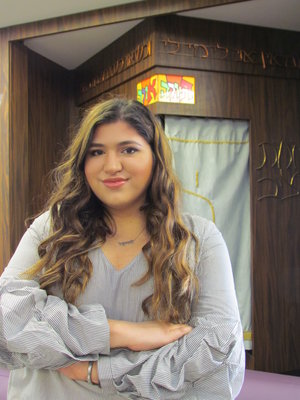Fulbright U.S. Student Program

taught English in Israel
The Fulbright U.S. Student Program provides funding and six- to twelve-month opportunities for graduating seniors, recent grads and graduate students to undertake international graduate study, advanced research, university teaching or teaching English in in a primary/secondary school abroad. The program has partnerships with more than 140 countries worldwide in all academic disciplines.
Applicants must be U.S. citizens and hold a minimum GPA of 3.3. The deadline for the Office of Fellowships to review your application is Aug. 23, 2024. Applications are due to Fulbright Oct. 8, 2024.
What programs/awards are available to students?
Study/Research Awards allow awardees to design their own projects who then typically work with advisers at foreign universities or other institutes of higher education.
English Teaching Assistant Awards provide recipients with the opportunity to assist primary and secondary school English teachers in a specified country while also serving as cultural ambassadors for the U.S.
Fulbright-National Geographic Award applicants must be Fulbright U.S. Student Program semi-finalists who can then request additional grant funds from the National Geographic Society to expand their research.
Critical Language Enhancement Awards provide select student grantees with three to six months of intensive language study in their host country as an enhancement to their Fulbright grant.
Fulbright-Fogarty Fellowships in Public Health are designed for candidates who are currently enrolled in medical school or in a graduate-level program and interested in global health.
Grant lengths and dates vary by award. Please consult the specific award description for details.
Why you should apply
The Fulbright program has significant financial benefits and can help pay for postgraduate education. Fellowships, like the Fulbright, also increase your access to education and expand your learning environment, both at home and abroad. In addition, they set you apart and attract the attention of schools and employers. In the end, Fulbrighters build connections with other recipients who may have prominent positions and useful perspectives.
Even if you are not awarded, there are benefits to completing the process. Applying helps you develop your writing and analytical skills to create articulate statements that you can use in postgraduate applications. It also gives you more opportunities to build professional relationships with faculty and community leaders because their letters of recommendation can be often used for future applications. Applying helps you gain a clearer vision of who you are and what you want to do that will help you make other decisions about life.
How you can get ready
To prepare for applying to a Fulbright, you must first build a strong academic record. Award committees look for evidence of your desire to learn and your strong effort in coursework and research opportunities. You should also begin to develop good relationships with faculty members and employers. Those relationships not only help you learn and find your way, but they also help when it is time to ask for strong, specific letters of recommendation. Another important way to prepare is to engage in your campus and community. Don't take on activities just to win fellowships but do focus your club and community efforts on areas you care about and where you can have a positive impact and leadership experience. Last but not least, ask the Office of Fellowships for help!
How we can help
We will help you every step of the way. We answer questions about fellowship opportunities, applications and eligibility, and provide individual advice on what fellowships might be best for you. We can help you find assistance in writing your applications, securing strong letters of recommendation, and gathering other application materials.
Contact us
Email fellowships@wayne.edu
Kevin Deegan-Krause
Professor of Political Science and Fellowships Faculty Coordinator
Catherine Franklin
Project Coordinator, Educational Outreach and International Programs